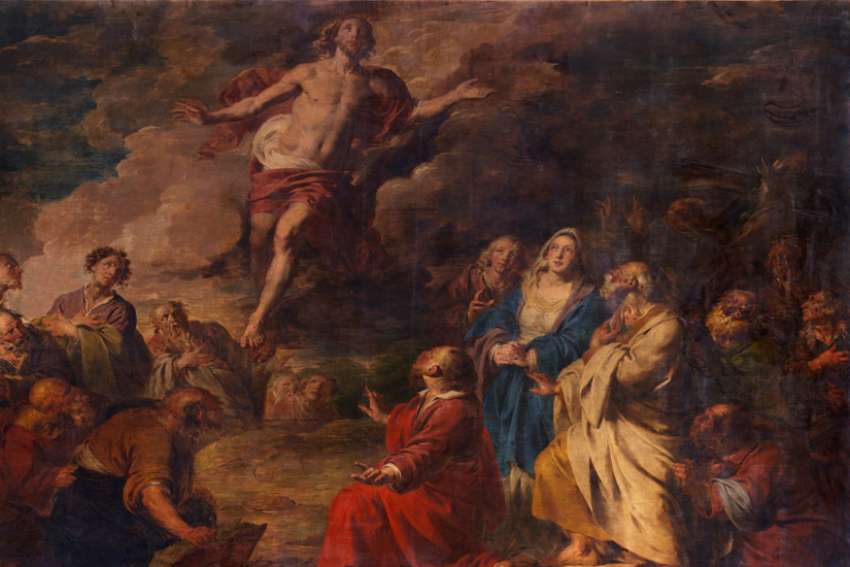In the ancient world, God or the gods were somewhere up in the sky — the Earth was the centre of the universe around which the sun, moon and stars revolved. Remnants of this model persist in usually humourous depictions of the departed floating around on clouds. The dethroning of the Earth as the centre of the universe was resisted fiercely at first but now accepted as fact — and our faith has survived.
Heaven and hell are thought of not primarily as places, but states of being. The Trinity exists everywhere — in the hearts of believers and in the midst of the messy and painful human condition. God is present to every bit of creation, just as we are interconnected to one another, to creation and to God. There is no up or down, far or near, inner or outer, but God is “all in all.” Our awareness must always be open and expanding.
This is the message of the passage from Acts — the apostles were expecting a huge divine intervention from above and a restoration of the kingdom. Jesus brushed aside their query and told them that they were poking their noses into God’s business. They would find God here on Earth and would be empowered by the Spirit to do God’s work. This point was hammered home as they gawked skyward at what appeared to be the receding figure of a Heaven-bound Jesus.
But Jesus did not “go” anywhere — He was returning to the full presence with the Father. The two angelic figures urged the followers of Jesus to focus on the Earth and the present — this was where God was to be found. If they could not recognize the presence of Jesus on Earth and in other people, gazing up towards the heavens would not help.
Drawing closer to God goes hand in hand with an increase in Spirit and revelation. It is not something we figure out for ourselves or find in books. It is nothing less than the opening and expansion of the mind and heart. Paul prayed for this gift for his followers, especially so that the eyes of their heart — their understanding — might be enlightened. This would enable them not only to comprehend the depth and breath of God, but also the power and immensity of the inheritance to which we are all called. This enlightenment is kindled by our own seeking of understanding and yearning for union with God.
The end of Luke’s Gospel and the beginning of Luke’s Acts are not quite harmonious with regard to time and sequence. At the end of Luke, Jesus proceeded directly and immediately from the upper room to His heavenly departure from Bethany. After His departure, His followers rejoiced constantly in the Temple with little hint of the struggles to come. In the second volume, Luke reopened the narrative — Jesus remained with them 40 days and taught many things of the kingdom. His final ascension was a very public event. The divergent literary details need not distract us, for both were vehicles for deeper theological truths.
The Gospel unveiled the presence of Christ in Scripture and at every point of human history. It also charged believers with continuing the work of the Lord as witnesses to the ends of the Earth. As further evidence of God’s omnipresence, it promised the imminent gift of the Spirit. Acts challenged our way of looking at the Earth, the heavens and the dwelling place of God. The Earth is not just a waystation where we pick up our ticket for Heaven as we pass through. We have all been given the honour and privilege of serving God and others on our journey and have been gifted with the Spirit to carry this out. Power given from on high is always given for the purpose of mission and service. Unfortunately, it is a gift that is often unopened, but it is still waiting for us.


